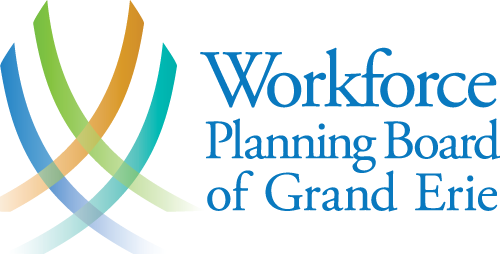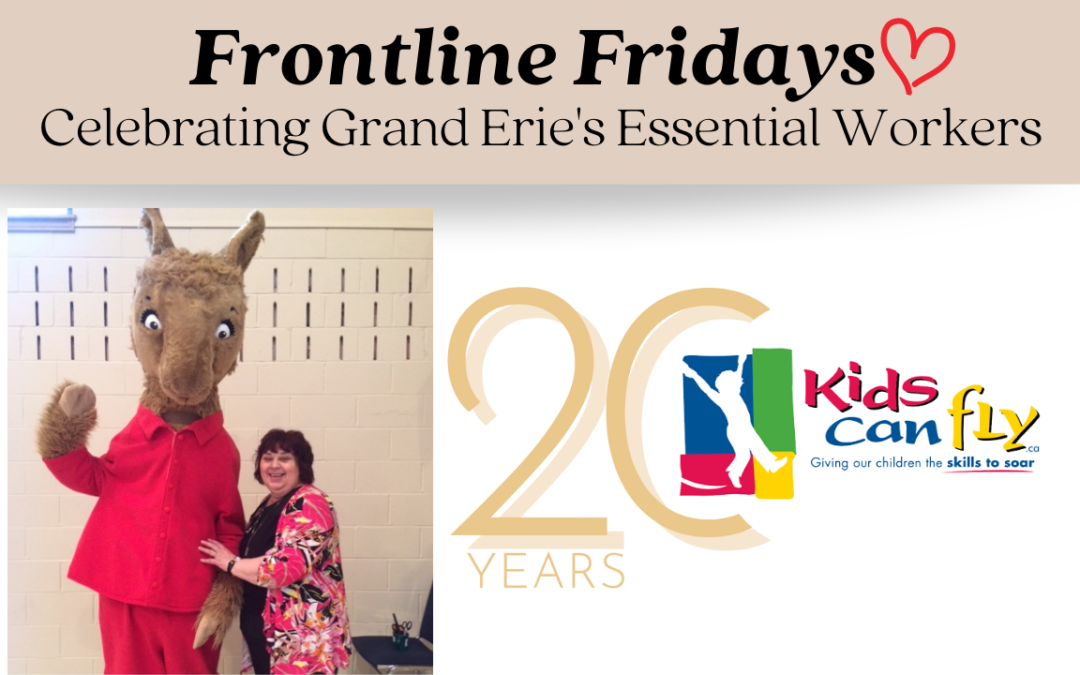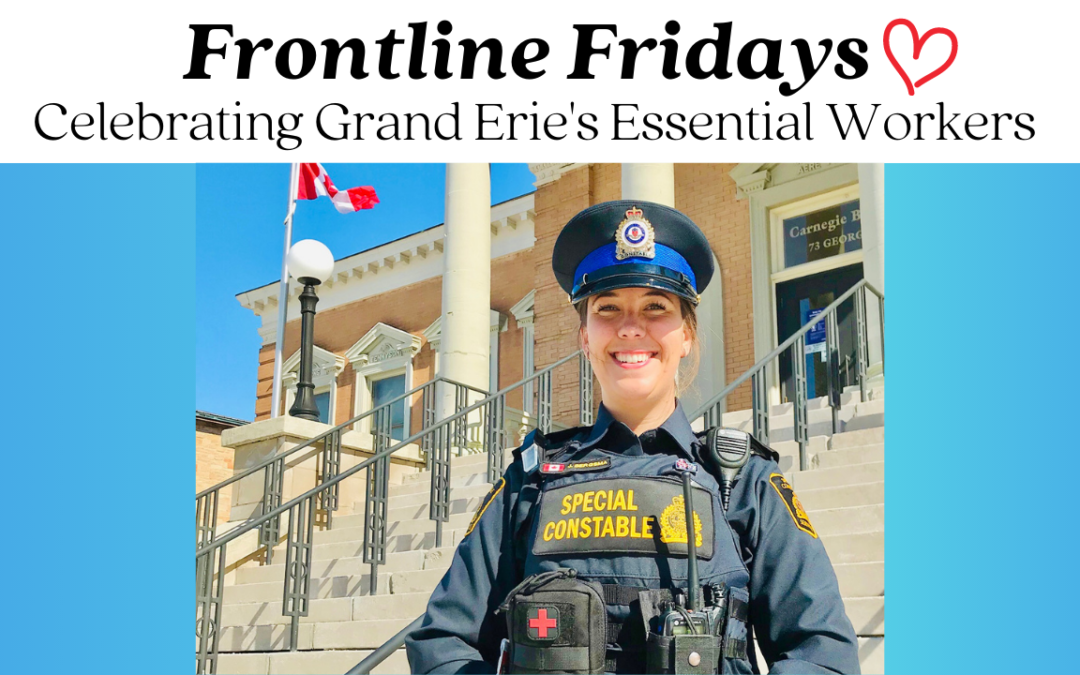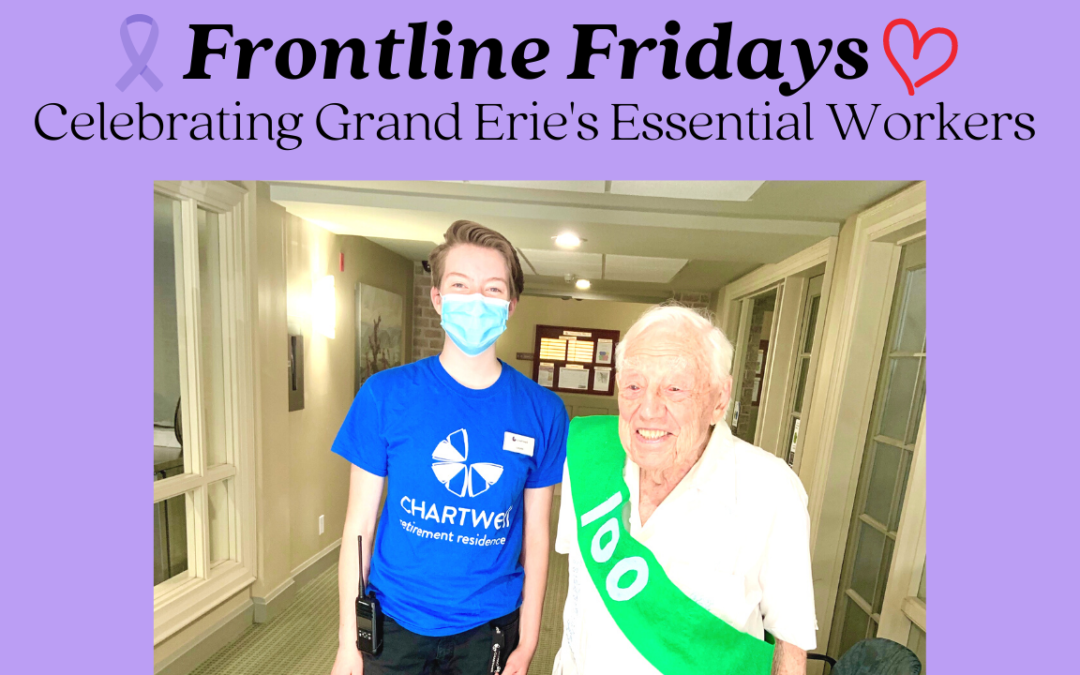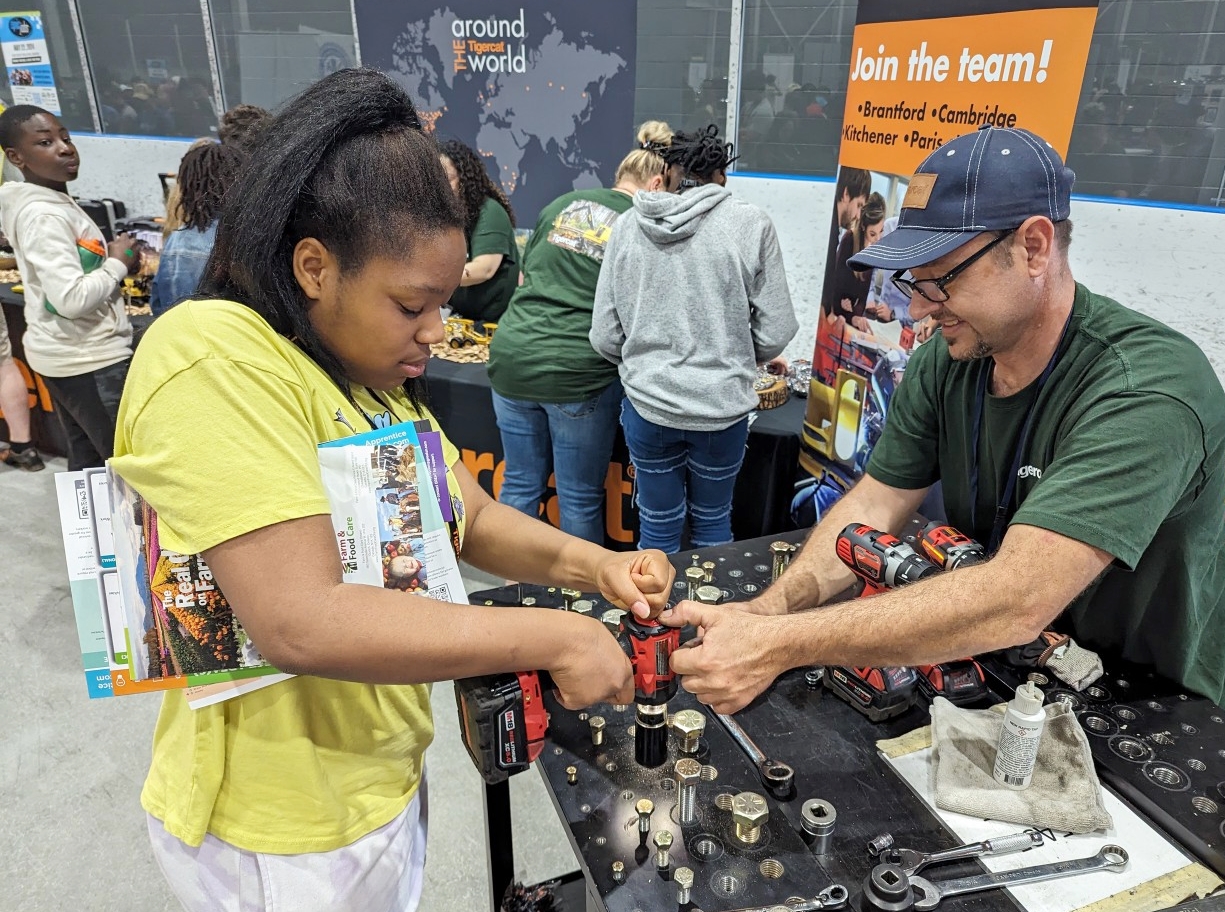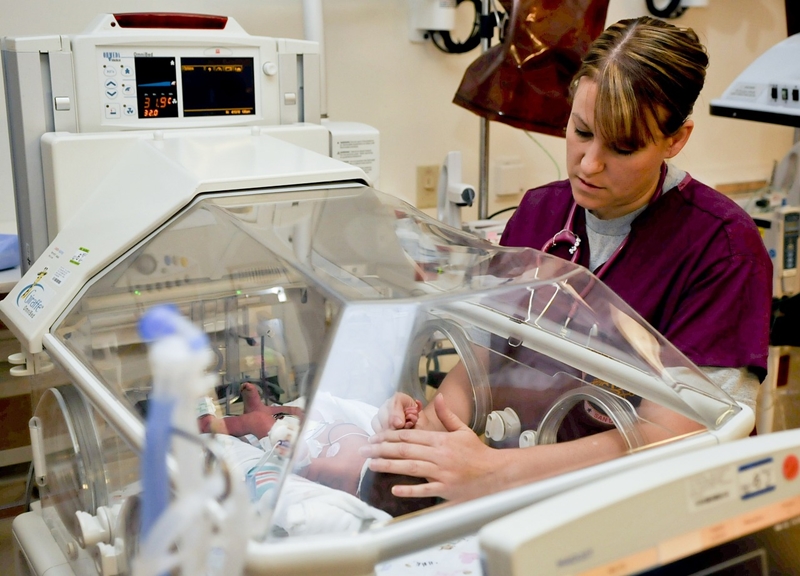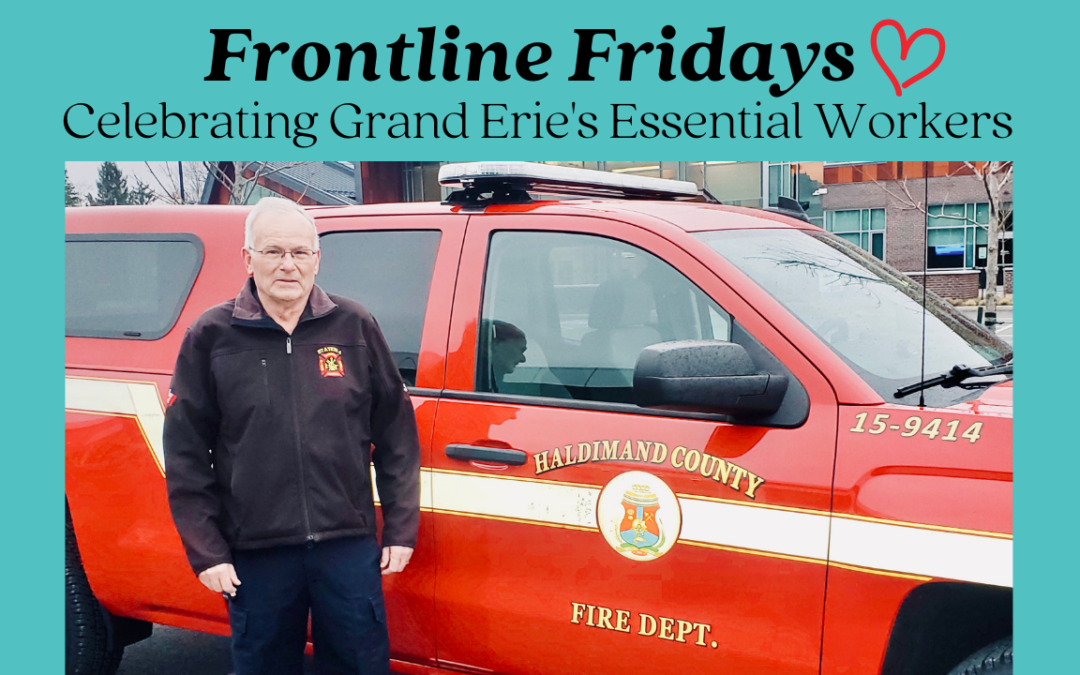
Celebrating Grand Erie’s Essential Workers – Jim
Through Frontline Fridays the Workforce Planning Board of Grand Erie pays tribute to essential workers in our community. Essential workers have helped us cope with the COVID-19 pandemic in Brantford, Six Nations, New Credit, and the counties of Brant, Haldimand and Norfolk.
Today, in our Frontline Fridays feature we talk to volunteer firefighter Jim Kent. Jim has volunteered with the Haldimand County Fire Department Station 4 (Cayuga) for approximately 35 years.
Deputy Fire Chief Rodger Hill commends Jim for his outstanding contributions to the department over the years and during the recent pandemic crisis:
“Jim Kent has not only served our community, but our firefighters week after week. It is rare to come across someone who is so dedicated and trustworthy, and we want Jim to be recognized for that.
Jim is the co-chair of the Fire Joint Health and Safety Committee and sits on the County’s Health and Safety Co-Chairs committee. He is regularly involved in health and safety meetings, discussions, policy reviews, management of fire hall safety. More noticeably he takes the time to ensure these items, as well as Health & Safety Boards, are consistent in each hall.
Additionally, Jim maintains records, schedules and conducts fit testing for all firefighters on both Self-Contained Breathing Apparatus and N95 masks. Jim travels to each fire hall regularly throughout the year, to conduct fit testing – that is approximately 548 fit tests per year taking numerous hours!
Jim consistently goes above and beyond. Recently due to COVID, he has undertaken going to all the stations to disinfect/sanitize fire apparatus. He has also taken a great interest in assisting at the vaccine clinics taking place throughout the county.
Jim’s efforts have not gone unnoticed, and we would like to extend our thanks and gratitude for everything that he does.”
What made you pursue this role?
Jim: Back in 1985, I was asked by the Fisherville deputy fire chief if I was interested in joining the local volunteer fire department. I was a bit apprehensive about it, but I said yes. At that time, you had to submit two letters of recommendation from two firefighters and then it went to a vote from the station firefighters. In January of 1986 I became a member of the department. I was then involved in the village community.
What was your education/training?
Jim: I have a Grade 12 education and no training in firefighting. Once I joined the department, I was expected to attend station training every Monday evening. It was also recommended that you would go to the Haldimand- Norfolk fire school weekend training sessions held once a year. The Haldimand County Fire Department now holds weekend training in specific subjects such as ice and water rescue, pump ops, live fire, etc. in addition to Monday night training.
What does the average day look like for you?
Jim: Although most days we do not have calls, we carry pagers which alert us to fire calls on a 24/7 basis which include fires, burning complaints, medical calls and similar. I am also the “worker co-chair” on the Health and Safety Committee which involves attending meetings
In my other tasks, I do fit testing of nearly 300 firefighters to make sure that they are wearing the proper Self-Contained Breathing Apparatus (SCBA) mask at fire scenes and the proper medical mask on medical calls. This testing is done during evenings on a 2-year cycle and includes updating fit test data on each firefighter.
Additionally, Haldimand County Fire Department has a fleet of 42 vehicles located in 12 different locations and I sanitize the trucks using a Noco-Sprayer on a 3-month basis. This process takes one hour per vehicle and about two full days a month.
How has Covid-19 affected your day-to-day work?
Jim: On medical calls, if patient is VSA (Vital Signs Absent), unconscious or Covid-19 positive, we now must wear gowns over our bunker gear/PPE, medical mask and gloves, face shield or goggles. If a patient is Covid-19 positive, personal protective equipment and gear must be washed on return to the firehall.
All trucks and equipment must now be wiped down with disinfectant after fire calls and training sessions. While riding in vehicles, in training sessions and on calls, every firefighter is required to be wearing a medical mask. As well, all tables and chairs in training rooms are now sanitized after each use.
Along with three or four other firefighters, I now also spend two days a week working at the vaccination clinic. Our job includes directing traffic in the parking lot, directing people in the arena and helping seniors fill out the application form for vaccination.
What has it been like to be an essential worker during the pandemic?
Jim: During fit testing, I try to maintain as much social distancing as possible. Due to disinfecting protocols, where it used to take 20 minutes to test a firefighter, it now takes 30 minutes minimum.
What advice would you give to someone interested in becoming a volunteer firefighter?
Jim: I would say have a great interest and passion for being a volunteer in your local community and be dedicated in wanting to provide your time to training and attending calls. Someone can gain skills for becoming a volunteer firefighter from doing other volunteer service in the community, work experience or training, as well as athletic involvement. Challenging yourself to learn is important.
For information on how to become a volunteer firefighter with Haldimand County: Become a Volunteer Firefighter – Haldimand County
Local Training and Certification for firefighters and roles like Jim’s:
Ontario Fire Academy:
Get Professional Firefighter Training at Ontario Fire Academy
Ontario Fire Administration:
Firefighter Technical Skills Assessment | Ontario Fire Administration Inc. (ofai.ca)
Conestoga College:
Ontario Colleges:
Firefighting / Fire Systems | ontariocolleges.ca
Firefighters Association of Ontario:
Fire Fighters Association Ontario | We Are Working For You (ffao.on.ca)
Ontario Professional Firefighters Association of Ontario:
Fanshawe College:
Fire Safety Systems | Fanshawe College
Mohawk College:
Statistics Canada Occupational Profile:
NOC 2011 – 4312 – Firefighters – Unit group (statcan.gc.ca)
Search Local Fire Services Jobs:



